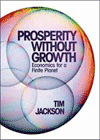Formatting the consumer: co-constructing demand for laptop computers
Overall aims
Through an exploration of the design, marketing, purchase, use and disposal of the laptop computer this project set out to investigate the role of both consumers and producers in shaping demand for the product.
Context
Excessive consumption of goods and resources in developed countries is seen as a key contributor to a number of environmental problems, particularly climate change. One area of very rapid growth is consumer electronics: for example laptop ownership in UK households has almost doubled in the last five years whilst the average first life-span of a laptop has decreased to just over three years. At present the consumer is positioned as responsible for creating the demand for such goods. One consequence of this understanding is that policies geared toward shifting consumption patterns in a more sustainable direction focus on changing the behaviour of individual consumers. However such interventions fail to consider the role of manufacturers, retailers and products themselves in shaping unsustainable patterns of demand.
Research questions and methods
Through a series of 15 interviews with 12 employees from consumer experience, environment, marketing, category and advertising divisions of a global IT manufacturer the study set out to understand how the manufacturer gauged consumer demand and what role it played in framing the qualities of its products and consumer purchase decisions. In parallel to this, through a series of 24 interviews, home visits and product use diaries with 12 users of the manufacturer's laptop computers, the research also sought to explore consumer expectations, purchase decisions, everyday use and environmental awareness.
Results
The research will produce four papers and two book chapters which report a range of theoretical and empirical insights. For example the research demonstrates some of the ways in which consumer research, feedback, and marketing practices construct an imaginary demanding consumer. The expectations of consumers are shown to be much more modest although the resulting pace of innovation frames premature obsolescence and contributes to a process of future-proofing whereby consumers buy much higher specced machines than they require. The research also demonstrates the role of manufacturers and retailers in framing particular product qualities and lifestyles as important whilst marginalising environmental features as a product quality. Finally the ongoing shift in domestic computing from desktop to laptop PC is explored through its temporal, social, aesthetic and spatial contribution to maintaining and enhancing comfort as an everyday accomplishment. Whilst the laptop computer requires less power than a desktop computer, the way it is being domesticated and the products it is used in conjunction with suggest that it is actually increasing the energy use of home computing.
Implications
The project demonstrates that supply side actors as well consumers play a significant role in shaping demand for products. Whilst more research is required to understand the marketing practices of manufacturers and retailers in this and other product sectors, it is clear that any policies seeking to seriously change consumer behaviour need to focus on changing the business practices of supply side actors, particularly those functions engaged in ‘knowing’ and educating the consumer. To complement the findings of this project a thorough quantitative study of the energy implications of domestic computing and the feedback effects associated with changing uses would also be desirable in order to test unsubstantiated green claims regarding the efficiency gains of a shift to laptop computing.
Outputs
Spinney, J, N Green, K Burningham, G Cooper and D Uzzell 2012. Are we sitting comfortably? Domestic imaginaries, laptop practices, and energy use'. Environment and Planning A, 44(11):2629-2645.
Spinney, J, K Burningham, G Cooper, N Green, D Uzzell (in preparation). 'Feeds and speeds': the role of specification, translation and dynamism in framing calculative encounters and laptop life-spans, Economy and Society/Sociological Review.
Spinney, J, K Burningham, G Cooper, B Gatersleben, N Green, and D Uzzell (in preparation). Reducing the quality of the environment: framing out the environment as a relevant laptop product quality, Organisation and Environment.
Spinney, J, K Burningham, G Cooper, N Green and D Uzzell, (in preparation). Formatting the consumer: constructing the demanding user in a global computer firm, Journal of consumer culture.
Spinney, J, K Burningham, G Cooper, N Green (in preparation). What’s wrong with a faster horse? Innovation, agency and sustainable consumption in the IT industry. In T Jackson and I Christie (Eds) Lifestyles, Values and the Environment. London: Earthscan/Routledge (forthcoming).
Bedford, T, N Green, J Spinney (in preparation). ICTs, Leisure and Sustainability. In J Rutter and M Vanden Abeele (Eds) New Technologies and the Changing Landscapes of Leisure.





